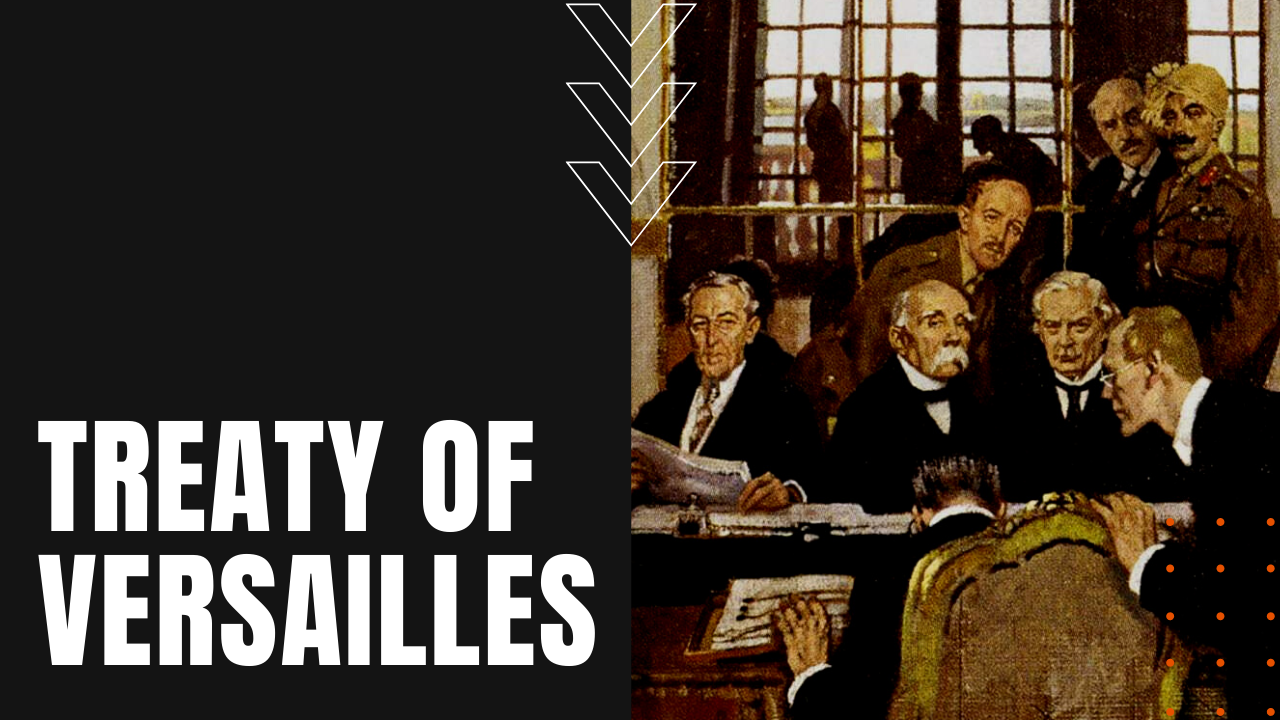Treaty of Versailles

In a January 1918 speech before Congress, President Woodrow Wilson laid out a 14-point plan which called for a non-punishing, equitable peace in post-World War One Europe, while creating an international arbitration organization, which became known as the League of Nations.
When he arrived at the Palace of Versailles for the Paris Peace Conference, as part of the Big Four Western nations who won the war, the outcome proved to be heavily punitive on the Germans, setting the stage for years of simmering resentments by the Germans.
Who Attended the Paris Peace Conference?
Present at the Paris Peace Conference was British Prime Minister Lloyd George, Italian leader Vittorio Emanuele Orlando, Woodrow Wilson and Georges Clemenceau of France. Each leader brought competing objectives to the table, but the European leaders quickly labeled Wilson’s 14 Points as too naive and idealistic.
Instead, the European Allies imposed harsh peace terms on Germany, stripping the nation of 10 percent of its territory and all its overseas colonial possessions. It also severely demilitarized Germany and forbade the country from maintaining an air force. More importantly, Article 231 of the treaty, also known as the “war guilt clause,” forced the Germans to take sole responsibility for starting World War One, further requiring the downtrodden German nation to pay enormous reparations for Allied war expenses and losses.
Treaty of Versailles Pushes Germany Towards Nazism
Germans were understandably infuriated over the treaty, quickly and accurately assessing the document as a dictated peace, replete with burdensome reparations that eventually topped 132 billion gold Reichsmarks—a sum so usury that few in the West expected Germany to ever pay in full. In response to the Treaty of Versailles, radical right-wing political forces like the National Socialist Workers’ Party or Nazis soon gained growing support in the 1920s and ‘30s, with open promises to reverse the national humiliations inherent in the Treaty of Versailles.
After the onset of the Great Depression of 1929, economic instability in Germany further weakened the post-war Weimar government, paving the way for Adolf Hitler’s ascendancy to power in 1933.
